Houthi launched a series of missiles and UAVs into Israel in support of Hamas, but not for military purposes, but mainly to serve the group's political calculations.
After the Israel-Hamas war broke out, a number of armed groups voiced their support for the Islamist movement in the Gaza Strip. However, apart from Hezbollah in Lebanon, a long-time ally of Hamas, only the Houthi force in Yemen has shown its support through military action.
The Pentagon announced on October 19 that a US destroyer in the Red Sea shot down three missiles and unmanned aerial vehicles (UAVs) launched from Yemen at Israel.
On October 31, the Israel Defense Forces (IDF) announced that it had successfully intercepted a surface-to-surface missile flying from the Red Sea towards the southern city of Eliat. Israeli fighter jets also shot down several suicide drones flying over the sea that morning.
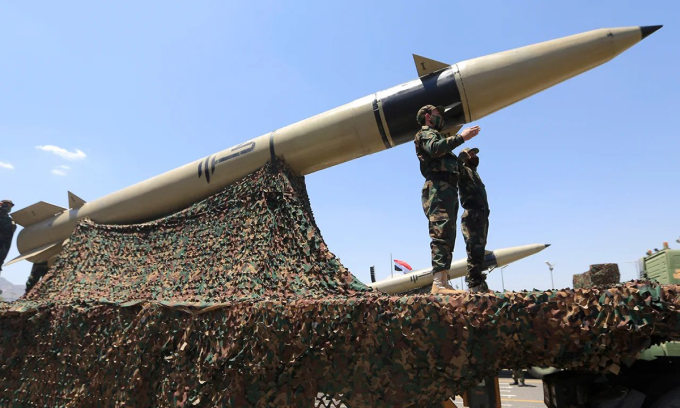
Missiles of Houthi forces during a military parade in Sanaa, Yemen, on September 21. Photo: AFP
Houthi, the Islamist armed group that controls large areas in Yemen, later confirmed that it had launched a large number of missiles and UAVs at Israel, adding that this was not the first time the force had attacked Tel Aviv, and warned that it would continue until the enemy "stops aggression" in the Gaza Strip.
A day later, the Houthis announced a new wave of drone strikes on multiple Israeli targets. It is unclear how much damage Tel Aviv suffered from the attack, but the IDF had previously sent missile boats to the Red Sea to bolster its defenses in the area amid the growing threat from Yemen.
According to Zoran Kusovac, a veteran analyst at Aj Jazeera , the Houthis' repeated missile and UAV attacks on Israel have not yielded many military results.
"Their missiles don't have much chance of hitting anything. Israel is more than 2,000 kilometers from Yemen, which is the maximum range for the Houthis' longest-range missiles," Kusovac said. "Moreover, their missiles have to get past the US warships patrolling the area, as well as the Israeli destroyers that have just been sent to the Red Sea."
This expert believes that the Houthi's main purpose in the missile attacks is not to cause material damage to Israel, but to launch a "political blow" against Saudi Arabia, the Houthi's opponent in the ongoing civil war in Yemen.
Yemen's civil war erupted in late 2014, when Iran-backed Houthi forces captured the capital Sanaa, forcing President Mansour Hadi and many officials to flee to Saudi Arabia. An international coalition led by Riyadh then launched a campaign against the Houthis to restore Hadi's internationally recognized government.
The Houthis now control much of the north and major population centers in Yemen, while the Saudi-backed government is based in the southern port city of Aden. The two sides have fought major battles in recent years that have killed hundreds of thousands of people.
The conflict in Yemen has calmed down over the past year thanks to UN-led peace efforts, but the conflict between the Houthi forces and the Saudi-backed government still smolders.
Saudi Arabia has recently sought to restore ties with Israel after decades of hostility, but those plans have been put on hold after the escalation of the conflict in the Gaza Strip. Reuters sources said Saudi Arabia, as the leader of the Arab bloc in the Middle East, decided to postpone talks with Israel in a show of support for the Palestinian people.
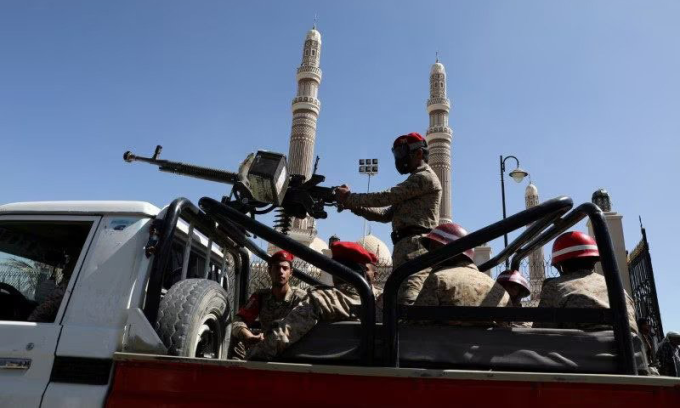
Houthi forces in Sanaa, Yemen in December 2021. Photo: Reuters
The US is pushing Israel and Saudi Arabia to continue normalizing relations despite the conflict in Gaza. In that context, the Houthis' stepped-up missile attacks on Israel could be an act of "adding fuel to the fire" of the conflict, making it difficult for the plan to normalize relations between Riyadh and Tel Aviv to become a reality, according to Mr. Kusovac.
In addition to undermining Saudi Arabia's foreign policy, the Houthis' move is also aimed at gaining more support domestically, by showing the people that this group is the only force in Yemen that dares to challenge Israel, a country that is considered an "enemy" by the Arab bloc.
"This way, the Houthis will gain an advantage over other factions in the country, attracting more support from Yemenis," said Mahad Darar, an expert at Colorado State University in the US. "This is also a way for the Houthis to show their own stance in the region, separate from Arab countries that have not reacted strongly to Israel, including Saudi Arabia."
Onur Sultan, a researcher at Beyond the Horizon ISSG, a Brussels-based research group, said Yemenis’ trust in the Houthis has recently declined due to poor governance, rampant corruption and an economic crisis in areas controlled by the group. The conflict in the Gaza Strip is therefore an opportunity for the Houthis to divert attention from their domestic problems and increase their support.
According to Sultan, the Houthis are part of the Iran-led "axis of resistance" in the Middle East to counter Israel, alongside Hezbollah, Hamas and Shiite Muslim militias in Iraq and Syria. Launching missiles at Tel Aviv is also a way for the Houthis to assert their role in the "axis of resistance", especially after Hezbollah took the first military action.
“Through the attacks, the Houthis have confirmed themselves as part of the axis, while proving themselves as a ‘capable’ group,” the expert said.
The Houthis have been fighting Israel and the West since their inception. Therefore, the group would hardly miss the opportunity to attack Tel Aviv, when the enemy is facing multiple fronts.
However, expert Darar said that Houthi attacks not only hardly threaten Israel, but could also inadvertently benefit the country, if it causes the US to take a more aggressive stance towards Iran, Israel's "rival" in the Middle East.
"The Houthi attacks could make the US think that Israel is facing a multi-front war backed by Iran," he said. "This will help reinforce the views of hard-line US officials, forcing the US to take a more aggressive stance against Iran."
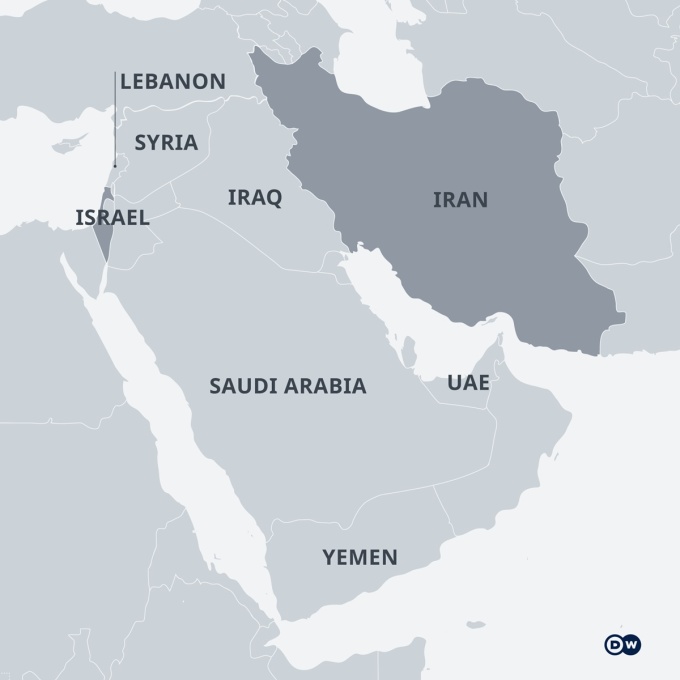
Location between Israel and countries in the region. Graphics: DW
Pham Giang (According to Aj Jazeera, Conversation, Reuters The Media Line )
Source link










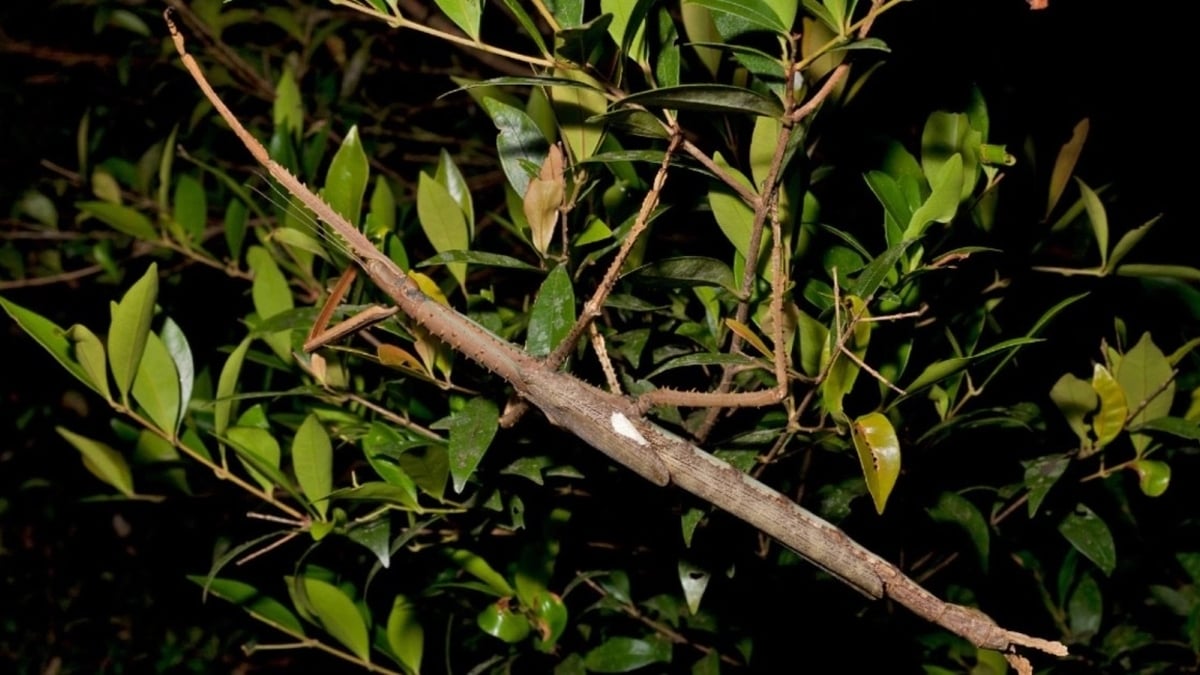
















![[Photo] Nghe An: Provincial Road 543D seriously eroded due to floods](https://vphoto.vietnam.vn/thumb/1200x675/vietnam/resource/IMAGE/2025/8/5/5759d3837c26428799f6d929fa274493)


































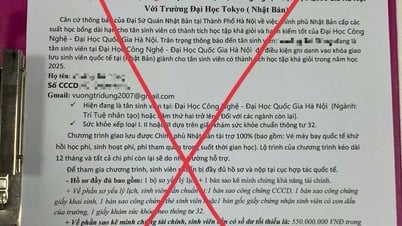














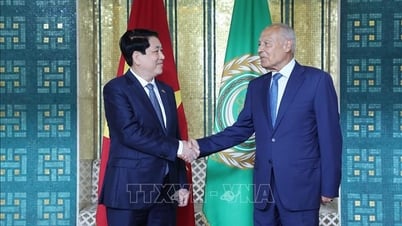





















Comment (0)